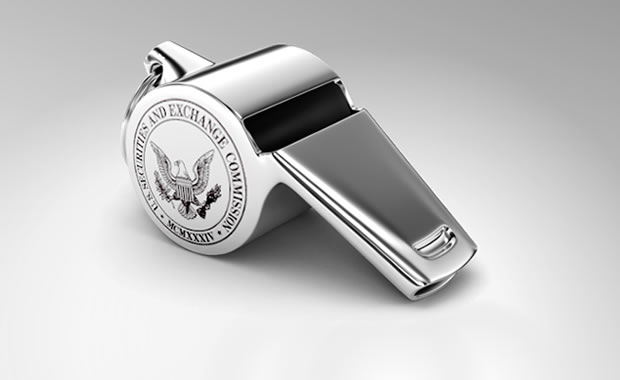
Last week, we reported on a case at the University of Leiden in which the institution found that a former psychology researcher there had committed research misconduct. In the anonymized report — which we were able to confirm regarded Lorenza Colzato, who is listed as a faculty member at Ruhr University in Bochum and at TU Dresden — the university found a lack of ethics approval for some studies and fabricating results in some grant applications. We asked the three whistleblowers in the case — Bryant Jongkees, Roberta Sellaro, and Laura Steenbergen — to reflect on their experiences. (We should note that they did not confirm it was Colzato named in the report.)
Retraction Watch (RW): What prompted you to come forward?
Bryant Jongkees, Roberta Sellaro, and Laura Steenbergen (BJ, RS, LS): We worked with the accused for many years, during which we observed and felt forced to get involved in several bad research practices. These practices would range from small to large violations. Since early on we were aware that this was not OK or normal, and so we tried to stand up to this person early on.
However, we very quickly learned that complaining could only lead to nasty situations such as long and prolonged criticism at a professional and personal level. At the same time you see this person and their productivity being valued and rewarded (fast and plenty publications, research grants, etc), while nobody ever asks questions. As time goes on, you learn to stay silent, because you are very dependent on this person – not just professionally, but emotionally too – and there is no one you can trust. Eventually you realize that there is no way out of your situation and, thus, you adjust your standards, rationalize the behavior as best as you can, and in doing so unfortunately become part of the problem.
But seeing this behavior recurring and steadily escalating, and seeing other people in the situations we had been in, led us to feel like we could no longer stay silent. We had become more independent (despite still working in the same department), and felt like we had to ‘break’ that system. About one year ago, we brought the issues to the attention of the scientific Director of our Institute, who took our story seriously from the beginning. Upon evaluating the evidence, together we decided the Director would file a complaint. Out of fear for retaliation, we initially did not join as formal complainants but eventually gathered the courage to join the complaint and disclose our role.
RW: What was this experience like for you?
BJ, RS, LS: It was a very difficult journey, and it still is, honestly. The case cost an immense amount of time and energy in the past year. That affects all aspects of your professional and personal life, yet you cannot explain to anyone what you are going through.
Not being allowed to discuss the case with anyone, for legal reasons, is rationally understandable (we’re scientists after all: there needs to be an independent investigation to draw objective conclusions) but emotionally it is very confusing. People close to you don’t understand why you have changed, and you can start doubting yourself (are things really that serious? Does everyone do it? etc.). You start feeling isolated and a bit like a cheater (again!) because there are important things going on, affecting also your colleagues, yet you cannot talk about it. You have to trust your superiors and the scientific integrity committee even though you don’t really trust anyone. You feel stuck; everyone around you moves forward but you cannot envision a future, or even what you would want the future to look like. There’s a constant struggle between knowing you did the right thing and the fear of losing everything.
It was a long and lonely process, but thankfully we had each other, and this helped us to keep having faith. The openness and unconditional, mutual trust amongst the 3 of us, combined with how the university responded and adapted to that, is what got us through.
We believe that our university behaved exemplary in this case: humble, open, fair, trying to build reciprocal trust and treating us as humans, and never as troublemakers. At no point did we feel like this case was possibly being ‘swept under the rug’. The university does not seem to be afraid of finding out truths that may be ugly or painful to themselves, it wants to draw lessons from what happened, and it wants to do so by being open about these aspects, which is our main interest too. We think this is something that others may learn from. For a self-cleansing process to occur within science, we need more openness amongst colleagues, be more willing to ask critical questions about another person’s scientific practices and answer those questions when directed at ourselves. Everyone needs to take an active role by exercising self-criticism/self-examination to admit own flaws, to take responsibility and action.
RW: Do you feel that the investigative report adequately describes what happened?
BJ, RS, LS: This is hard to tell for us. The investigative report is a relatively brief summary of hours of hearings and plenty of reviewed evidence, very factual and, in a way, emotionally flat. This is quite at odds with the emotional rollercoaster we went through.
RW: Do you feel that the sanctions are appropriate?
BJ, RS, LS: That is not for us to judge.
Like Retraction Watch? You can make a tax-deductible contribution to support our work, follow us on Twitter, like us on Facebook, add us to your RSS reader, or subscribe to our daily digest. If you find a retraction that’s not in our database, you can let us know here. For comments or feedback, email us at [email protected].
The link to the report does not work.
It’s here:
https://www.organisatiegids.universiteitleiden.nl/binaries/content/assets/ul2staff/organisatiegids/universitaire-commissies/cwi/advies-cwi-2019-01-geanonimiseerd-engels-edit-def-004.pdf
They may have updated something, as suggested by the new filename suggests (“edit-def” added and going from 003 to 004).